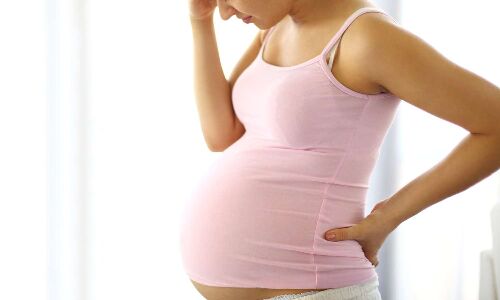Prenatal Depression Linked to risk of Postpartum CVD

According to recent research, even without co-occurring hypertensive disorders of pregnancy, pregnant women with prenatal depression are more likely to be diagnosed with new cardiovascular disease (CVD) in the 24 months following delivery.
Prenatal depression was most significantly linked to ischemic heart disease (IHD) in a study of over 100,000 pregnant women in the US; those with prenatal depression had an 83% greater chance of developing IHD than those without a diagnosis.
Pregnancy complications, such as prenatal depression, have an effect on cardiovascular health over the long run. In order to avoid these effects, counseling and CVD screening might be done on women during the postpartum period.
Researchers used the Maine Health Data Organization's All Payer Claims Data to examine information from 119 422 pregnant people who delivered between 2007 and 2019 as part of a longitudinal, population-based study.
Patients having pre-pregnancy CVD, multiple pregnancies, or no ongoing prenatal insurance were disqualified. Prenatal depression and CVD, including heart failure (HF), IHD, arrhythmia/cardiac arrest, cardiomyopathy, cerebrovascular disease, and chronic hypertension (HTN), were examined by Ackerman-Banks and colleagues. By hypertensive condition or pregnant status, analyses were stratified.
According to the research, prenatal depression was present in 21.6% of the sample. In the first 24 months after delivery, the cumulative risks for new diagnoses of CVD were 0.2% for HF, IHD, cardiomyopathy, and arrhythmia; 0.5% for stroke; and 2.1% for HTN. The study's definition of serious cardiac illness as a composite of heart failure, stroke, or cardiomyopathy resulted in a cumulative risk of 0.8%.
Pregnant women with prenatal depression had a higher chance of developing IHD (adjusted HR [aHR] 1.83, 95% CI 1.2-2.8), arrhythmia/cardiac arrest (aHR 1.6, 95% CI 1.1-2.31), cardiomyopathy (aHR 1.61, 95% CI 1.15-2.24), and HTN (aHR 1.32, 95% CI 1.17-1.5), according to the research.
Several relationships maintained in analyses stratified by co-occurring hypertensive diseases during pregnancy.
The links between prenatal depression and several CVD outcomes were reduced after accounting for pregnancy anxiety, according to the researchers, "suggesting that prenatal depression alone may not increase the risk for these CVD diagnoses."
Anyone with prenatal depression should be aware of the potential effects on their long-term cardiovascular health, take precautions to test for other risk factors, and speak with their primary care physician to undertake cardiovascular disease preventative measures. They should also undergo tests for high cholesterol and type 2 diabetes, start an exercise program, eat a nutritious diet, and give up smoking.
Reference:
Ackerman-Banks CM, Lipkind HS, Palmsten K, et al. Association of prenatal depression with new cardiovascular disease within 24 months postpartum. J Am Heart Assoc. Published online April 19, 2023. doi:10.1161/JAHA.122.028133.
from Medical News, Health News Latest, Medical News Today - Medical Dialogues | https://ift.tt/7V0HUKk
Comments
Post a Comment